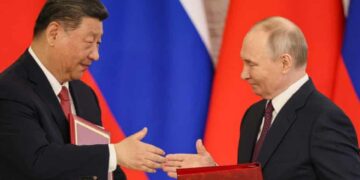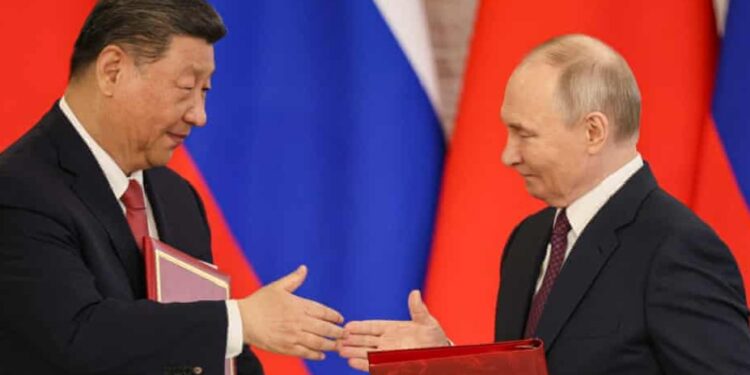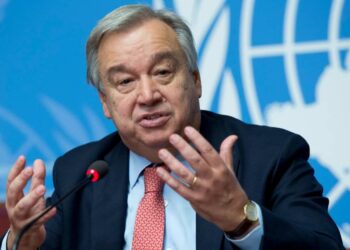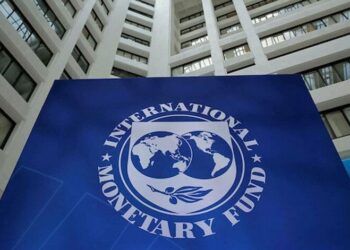By Enyichukwu Enemanna
Both Russian and Chinese leaders are missing from the list of world leaders participating in the BRICS summit starting in Brazil on Sunday, in what analysts say may be a sign that the group’s recent expansion has reduced its ideological value to the two founding members.
China’s 72-year-old leader, Xi Jinping, has been attending BRICS summits for the past 12 years. No official reason has been given for sending the premier, Li Qiang, other than scheduling conflicts.
Russia’s President, Vladimir Putin, is facing an International Criminal Court arrest warrant and may have decided not to travel to Rio to avoid embarrassing the summit hosts, who are signatories to the ICC statute.
Putin abandoned his plans to attend the 2023 BRICS summit in South Africa after the president, Cyril Ramaphosa, was unable to offer any guarantees regarding Putin’s arrest or otherwise under the warrant.
Putin is accused by the ICC of being instrumental in abducting and deporting tens of thousands of Ukrainian children.
BRICS, often described as the developing world’s alternative to the G7 group of nations, has undergone a recent rapid expansion, but in the process has diluted its coherence as a body offering an ideological alternative to the Western capitalism represented by the G7.
Its founding members were Brazil, Russia, India, China and South Africa, but the group last year expanded to include Indonesia, Iran, Egypt, Ethiopia, Saudi Arabia and the United Arab Emirates, countries in various stages of economic development and with varying levels of antagonism towards the West.
Analysts say the additions skewed the body towards autocracies, leaving Brazil, South Africa and India uneasy.
Brazil has said the BRICS grouping is just one sign of an emerging new world order.
Speaking recently at the Overseas Development Institute, the former Brazilian foreign minister and current ambassador to London, Antonio Patriota, said Donald Trump’s “America First” foreign policy would move the world order away from the US as a superpower and towards a multipolar world with power spread more evenly.
For the host President, Luiz Inácio Lula da Silva, the absence of two of BRICS’ most prominent leaders is a setback.
Brazil had hoped to use the summit to assert its role as a key global player, ahead of hosting a G20 summit, COP30 climate talks, and preparing for a high-stakes presidential election in 2026. Lula is expected to seek a fourth term in office.
Economic cooperation will be central to the summit’s agenda.
On Friday, Lula once again called for BRICS nations to explore alternatives to the US dollar for conducting trade, describing reliance on the greenback as a holdover from a bygone era.




































